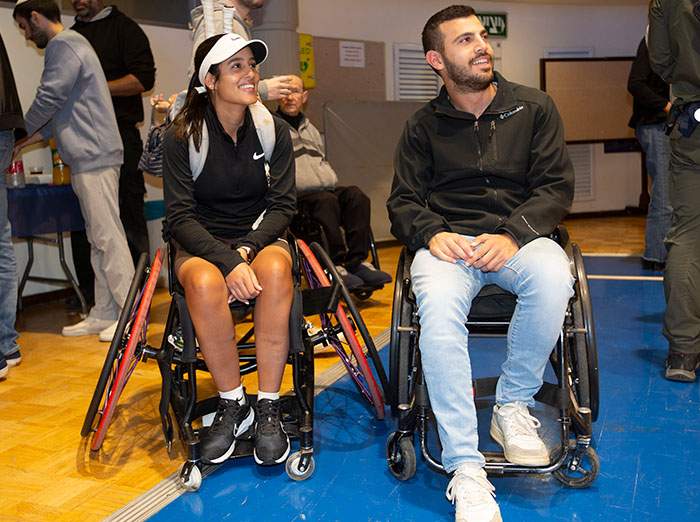World Health Day, observed on April 7, serves as a global call to action to promote health equity, expand access to healthcare, and foster well-being for all. For wounded veterans, this day holds particular resonance, highlighting the importance of comprehensive, specialized healthcare that meets their physical, emotional, and psychological needs.
Israeli veterans who have sustained injuries in the line of duty face unique health challenges, from long-term physical rehabilitation to coping with post-traumatic stress disorder (PTSD). Ensuring they receive the care and support they deserve is not just a matter of policy—it is a national responsibility and a moral imperative.
Holistic Healthcare for Wounded Veterans
The path to recovery for wounded veterans often requires more than just physical treatment. Holistic healthcare approaches that combine physical therapy, mental health support, and community reintegration are critical. Facilities like Beit Halochem provide a model for veteran care, offering world-class rehabilitation centers where wounded soldiers receive physical therapy, psychological counseling, social activities, and career assistance under one roof.
These centers recognize that healing isn’t linear and that veterans need sustained, personalized care tailored to their evolving needs. Whether a veteran is navigating life with a prosthetic limb or managing anxiety and depression, access to multidisciplinary teams of professionals can make a transformative difference.
Mental Health Support and PTSD Resources
Mental health remains a vital component of overall wellness for veterans. PTSD, anxiety, depression, and other psychological challenges are common among those who have served in combat or experienced traumatic events. Israeli veterans have access to numerous initiatives designed to address these issues head-on, including confidential counseling, peer support programs, and group therapy.
Organizations working in partnership with the IDF and veteran advocacy groups have expanded these resources in recent years, reducing stigma and encouraging more veterans to seek help. Public campaigns and educational workshops continue to promote the importance of mental wellness in the healing process.
Building a Supportive Community
Health and wellness for veterans extend beyond medical facilities. Community support networks—made up of family members, fellow veterans, health professionals, and volunteers—play a crucial role in recovery. Events, wellness workshops, and family-inclusive programs help veterans reintegrate into daily life, rediscover purpose, and build meaningful connections.
Access to recreational and sports programs, nutrition counseling, and vocational training also contribute to a veteran’s overall health. These services not only help individuals regain their independence but also promote long-term well-being.
Looking Ahead: A Call to Action
On World Health Day, let us reaffirm our commitment to ensuring that every wounded veteran receives the care they need to heal and thrive. Investing in veterans’ health means investing in a stronger, more compassionate society. By prioritizing comprehensive care, supporting mental health, and fostering inclusive communities, we can uphold our responsibility to those who have given so much in service of their country.
This April 7, we recognize not only the challenges veterans face but also the remarkable strength they display every day. Through continued advocacy and support, we can ensure that health and wellness remain at the forefront of veteran care.

